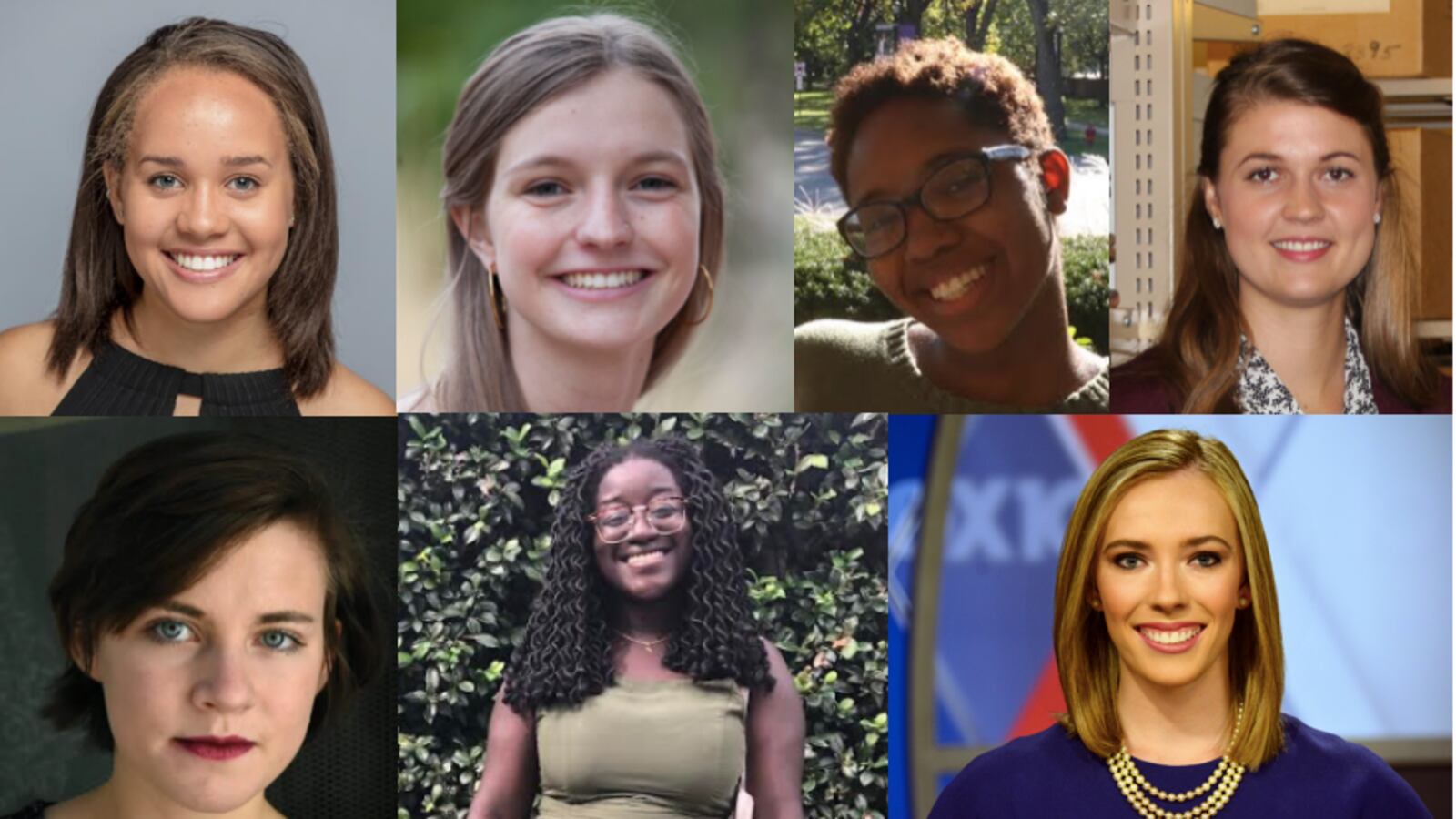Starting in just a few weeks, Chalkbeat’s newsroom will grow as our 2019 summer interns join our reporting teams — and we can’t wait.
This year’s intern class is larger than ever and for the first time includes multiple people who read Chalkbeat when they were in high school. It also includes a journalist whose reporting caused all Alabama schools to be tested for lead, the former historian for Florida’s state archives, and an aspiring roller derby racer.
You’ll start seeing their stories soon. For now, get to know our incoming intern class here. And stay tuned to our careers page for updates on opportunities at Chalkbeat, including our 2020 internship program — the application for our 10-week, paid internships will open this fall.
Imani Harris, Detroit
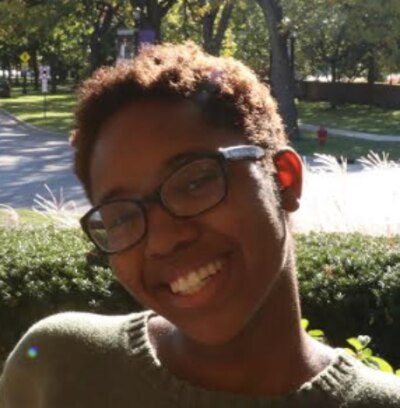
A native Detroiter who interned at WDET and the Detroit Free Press in high school, Imani attends Northwestern University’s Medill School of Journalism. She’s passionate about storytelling and plans to use journalism to lift the voices of those who aren’t often heard, share solutions with them, and hold those responsible for them accountable.
Why Chalkbeat: When I lived in Detroit, I wrote a blog about my experience within the Detroit district that went viral. I realized pretty quickly that writing can be an effective way to both educate people on things they’ve already made assumptions about, and appeal to them in a way that drives them to action. That’s what Chalkbeat does, and I can’t wait to learn from Chalkbeat Detroit’s amazing team, who are the same ones I turned to as a student to find out about many things happening in my school system.
Read this story: In high school, I traveled with about 120 people from Michigan to Washington, D.C., where they planned to protest during Betsy DeVos’s confirmation hearing as U.S. education secretary. My story followed the experience of two students in the group, which wasn’t allowed into the hearing, and reflects my approach: to tell big stories through the lenses of those affected by them.
For fun: According to my mom, my twin brother and I were the first twins born in our hospital on January 1, 2000.
Caity Henderson, Chicago
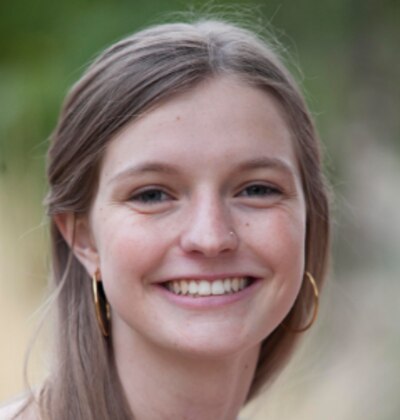
A journalism and sociology student at Northwestern University, Caity hails from Colorado, where she spent 12 years in Denver Public Schools. She just finished a stint as the city editor at the Daily Northwestern.
Why Chalkbeat: I have been a Chalkbeat reader since I was a high school student, and as an education reporter, I cannot believe I will have the privilege to report on education for the summer. Summer is not a break for policy in a city filled with grassroots organizations and young advocates. With a new mayor, Lori Lightfoot, I’m curious what comes next for the city, and I am eager to report on Chicago Public Schools for the first time.
Read this story: This story is the culmination of years of my research about the Sand Creek Massacre as a Coloradan and a Northwestern student. Reporting it gave me the opportunity to sit down with descendants and students to evaluate the need for education programming. I had the chance to take a deep dive in a daily news setting to learn about how history affects us today.
For fun: I inspired the song “Daughter at the Airport” by my dad’s band, The Mossgatherers (available on Spotify and Apple Music).
Erica Irish, Indiana
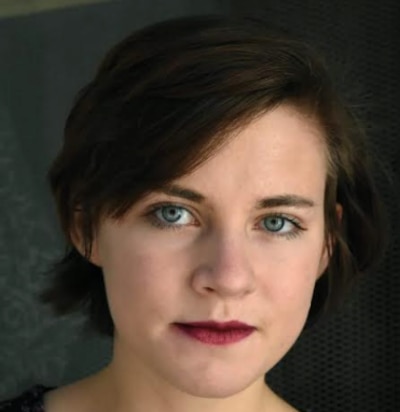
A junior at Franklin College in Franklin, Indiana, Erica is studying journalism, political science, and public relations. She previously worked for the Indianapolis Business Journal, assisted a team in producing a documentary with WFYI, and covered issues of public importance during Indiana’s 2019 legislative session at The Statehouse File.
Why Chalkbeat: Chalkbeat stories drew me in because they offer clear explanations of complex policy and also focus on people that don’t always get attention in policy reporting. As an intern, I hope to help advance Chalkbeat’s mission and learn how to produce meaningful, community-driven stories in my future career.
Read this story: Every story about public policy, politics and law requires a human actor to have the most impact on a community, whether that actor serves as a call to action or as an avenue to building larger context around an issue. While reporting at the Indiana Statehouse, for example, I covered a spectrum of issues, from the consequences of education policy on students with disabilities to changes in Indiana’s payday and subprime lending market. In each assignment, I strive to illustrate the policy in action, for better or for worse, to remind public officials and general citizens alike of how formal decisions can affect real people.
For fun: I recently spent a week in New York City competing in my first-ever National Model United Nations conference, the largest and oldest United Nations simulation in the world. Oh, and I love to roller skate. Participating in a roller derby is at the top of my bucket list.
Zipporah Osei, New York City
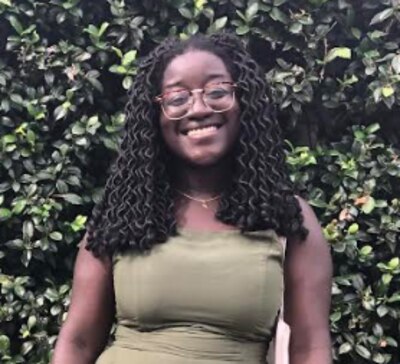
A junior journalism major at Northeastern University, Zipporah has interned for The Boston Globe, where she focused on community reporting with stories on small businesses and a reckoning over local ties to slavery, and The Chronicle of Higher Education, where she covered town-gown relations as well as race on college campuses.
Why Chalkbeat: I believe that education reporting is one of the cornerstones of community-focused journalism and had read a lot of Chalkbeat’s reporting because of that. I grew up very close to New York City in Yonkers, New York, so when I heard there was an internship, I jumped at the opportunity.
Read this story: I’m particularly proud of my reporting on Bennett College, one of just two remaining women-only historically black colleges. Bennett College officials and alumnae launched a nationwide campaign to save the institution after learning it was facing loss of accreditation and possible closure. I did a series of stories about what would be lost for black women in higher education if the college were to close. I love that I got the chance to write an article focused on inequity in education and the ways disenfranchised people fight against it.
For fun: I’m currently training to run my first 5K!
Kathryn Palmer, Memphis
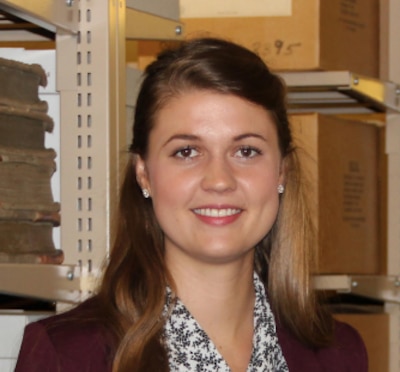
Kathryn is a graduate student at the University of Missouri School of Journalism. Before becoming a journalist Kathryn taught U.S. history at Tallahassee Community College, served as the historian of the State Archives of Florida, and documented the history of school desegregation in her native north Florida. Her work has appeared in The Florida Historical Quarterly, The Florida Memory Blog, the Columbia Missourian, PolitiFact, and on National Public Radio’s Here and Now.
Why Chalkbeat: As a former teacher and aspiring professional education writer, I have long admired Chalkbeat’s commitment to using the press as a force for educational equity, and I’m excited to join that effort this summer.
Read this story: My story about the contested 80-year legacy of Lloyd Gaines, the missing U.S. Supreme Court plaintiff whose 1938 case helped integrate higher education, exemplifies the way I try to infuse historical context into news reporting.
For fun: After surviving countless sizzling, soupy Florida summers, I am truly unfazed by my Midwestern friends’ well-meaning warnings to “get ready” for the hot Memphis summer ahead. I can handle it!
Camille Respess, National
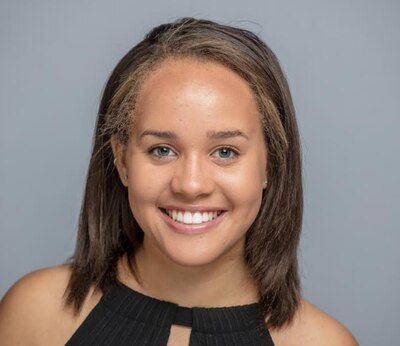
Camille has been drawn to covering education since she reported on the St. Louis school desegregation program for the first time her senior year of high school. Now a journalism major and education studies minor at the University of Florida, Camille has reported on a struggling rural public school near her university and the effects of a Florida House bill that, in part, determines the fate of low-performing schools in the state. She writes for her university’s NPR and PBS affiliate and recently was as an assistant project editor for The Trace and The Miami Herald’s “Since Parkland” project that tells the stories of the 1,200 young Americans killed by gun violence in the past year.
Why Chalkbeat: Choosing Chalkbeat was easy! I’m dedicated to immersing herself in environments where I get to act on my keen fascination with the way education systems affect young lives, and I’m excited to get a chance to think and report about this at the national level this summer.
Read this story: While interning at the Riverfront Times in St. Louis last summer, I wrote a cover story about the nation’s longest school desegregation program and its uncertain future. The story allowed me to take a community-oriented approach to telling the stories of families affected by this program.
For fun: I’m from St. Louis and strongly believe that it’s one of the best cities in America.
Kati Weis, Colorado

A graduate student at University of Denver’s Sturm College of Law pursuing a master’s degree in legal studies, Kati has more than five years of reporting experience in Mobile, Alabama, where she worked as an investigative reporter for local television station WALA. She was recognized as Reporter of the Year and Best Investigative Reporter by both the Alabama Broadcaster’s Association and the Alabama AP in 2018.
Why Chalkbeat: I plan to continue my investigative reporting work in the Denver area after graduation, and I believe this opportunity will give me a great head start on that goal. So, if you have any story ideas that require some heavy-lifting, like government data analysis, or a deep dive into court documents, please send them my way!
Read this story: In 2016, I uncovered concerns of lead contamination in some local drinking water supplies of southern Alabama. My reporting revealed that public schools in the state were not previously testing their water for lead contamination, because there was no state law requiring them to do so. Because of my reporting, the Alabama State Board of Education announced it would help all public schools statewide test for lead.
For fun: I’m a big fan of dancing. I taught a dance fitness class in college, and I love any opportunity to bust a move still to this day!


